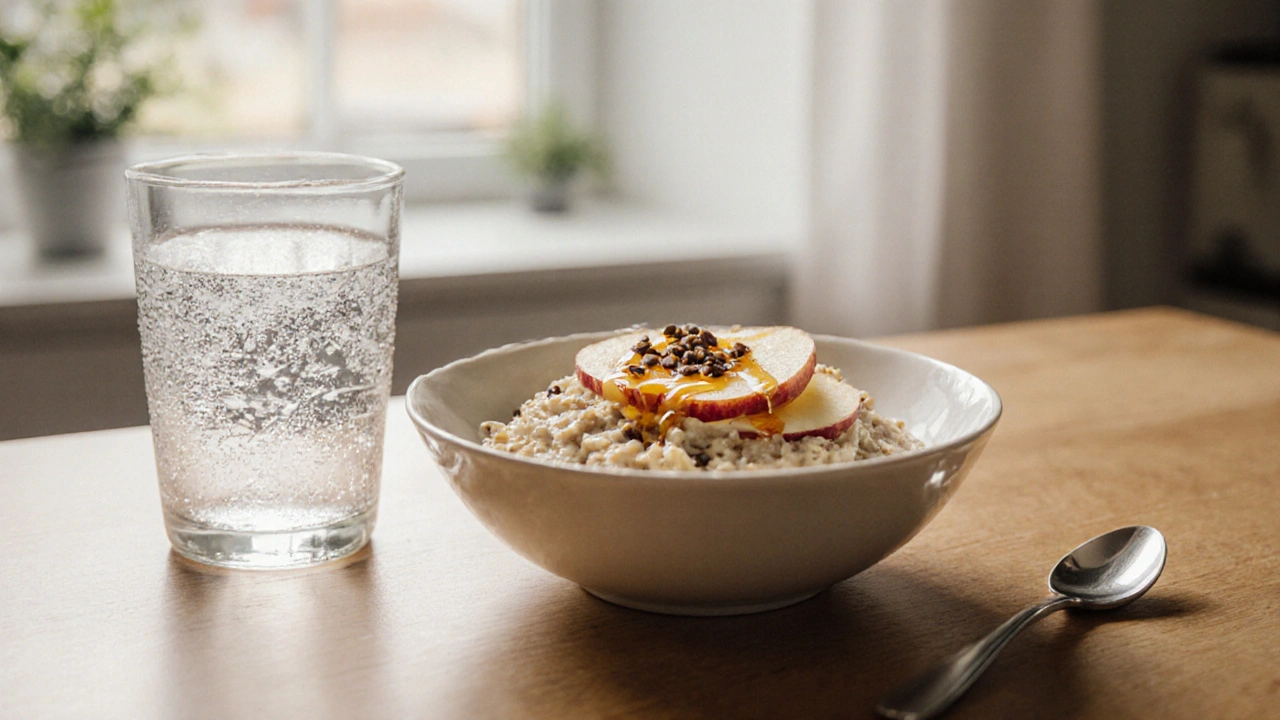Soluble Fiber: What It Does, Where to Find It, and How It Helps Your Health
When you hear soluble fiber, a type of dietary fiber that dissolves in water to form a gel-like substance. Also known as viscous fiber, it’s not just filler — it’s one of the most active players in your digestive system. Unlike insoluble fiber that just adds bulk, soluble fiber works behind the scenes to slow down how fast your body absorbs sugar and fat. That’s why it’s linked to better blood sugar control, lower LDL cholesterol, and a more stable gut environment.
It’s found in everyday foods you probably already eat. Oats, beans, lentils, apples, and flaxseeds are packed with it. Psyllium husk, often sold as a supplement, is one of the purest sources. But you don’t need pills. A bowl of oatmeal with sliced banana, a side of black beans with your lunch, or a snack of chia pudding gives you more than enough. Your gut bacteria feed on soluble fiber — turning it into short-chain fatty acids that calm inflammation and strengthen your intestinal lining. That’s why people with irritable bowel syndrome (IBS) often feel better when they increase their intake, especially from gentle sources like cooked carrots or peeled apples.
It also helps your heart. Studies show that eating 5–10 grams of soluble fiber a day can lower LDL (bad) cholesterol by about 5%. That’s similar to the effect of some low-dose statins, but without the side effects. And if you’re prediabetic or managing type 2 diabetes, soluble fiber slows glucose absorption, preventing those spikes and crashes that leave you tired and hungry. It’s not magic — it’s physics. The gel it forms in your gut literally traps sugar and cholesterol molecules, letting your body absorb them slowly.
Some people confuse it with insoluble fiber, which is found in whole wheat, nuts, and vegetables like broccoli. That type keeps you regular but doesn’t affect cholesterol or blood sugar the same way. Soluble fiber is the one you want for metabolic health. And while supplements like Metamucil work, real food gives you vitamins, minerals, and other fibers that work together. No pill replaces a bowl of lentil soup.
There’s no magic number, but most adults need 25–38 grams of total fiber daily — and about a third of that should be soluble. Start small. Add a tablespoon of ground flaxseed to your yogurt. Swap white rice for barley. Snack on an orange instead of drinking juice. Your gut will thank you. Below, you’ll find real-world guides on how fiber connects to gut health, medication safety, and even how certain drugs interact with your digestion — all backed by practical advice you can use today.

Why Fiber is Key to a Heart‑Healthy Diet for Lowering Cholesterol
Finnegan O'Sullivan Oct 9 18Learn why dietary fiber, especially soluble types, is vital for a heart‑healthy diet and how it can lower high cholesterol. Get food lists, daily checklists, and practical tips.
More Detail